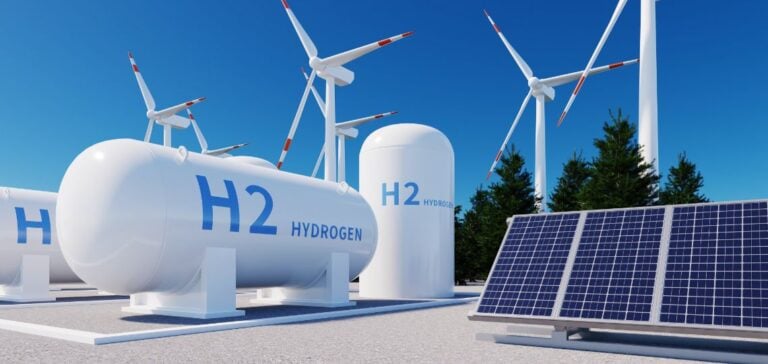Efforts to enhance price transparency in the North American hydrogen market are intensifying. Companies like Plug Power and H2B2 Electrolysis Technology are redefining their marketing models to attract buyers in key sectors such as ammonia, mobility, and power generation.
**Plug Power**, a major player in the industry, now offers weekly availability of liquid hydrogen at **$10/kg**. These offerings, available at its facilities in Woodbine, Georgia, and Charleston, Tennessee, signify a break from traditional models. The product, with a purity of 99.999%, complies with SAE 2719 standards for fuel cells. Sanjay Shrestha, President of Plug Power, emphasized that this model, free from the constraints of long-term contracts, democratizes access to hydrogen.
Pedro Pajares, CEO of **H2B2 Electrolysis Technology**, announced the availability of “green” hydrogen produced under its SoHyCal project at **$30/kg** at the gate of its California site. This offering reflects the complexity of electrolysis processes and the company’s commitment to promoting sustainable energy solutions.
A Strategic Market Evolution
Price transparency could transform the dynamics of the hydrogen market, which has long been criticized for its opacity. According to Platts, hydrogen fuel prices for fuel-cell vehicles reached **$34.70/kg** in California in early December, more than double 2021 levels. This increase is attributed to supply tensions, funding disparities, and growing demand.
Spot offers vary depending on the volume and type of hydrogen. For example, in California, gaseous hydrogen prices range between **$13 and $14/kg** for volumes below 5,000 kg per month. Public transport operators and logistics companies using hydrogen fuel cells have access to prices ranging from **$8 to $15/kg**, according to industry sources.
A Revisited Commercial Model
Plug Power and other players aim to transform the market by offering flexible and transparent solutions. By removing the barriers associated with “take-or-pay” agreements, the company hopes to attract a broader range of customers while setting new standards in hydrogen distribution.
“Historically, hydrogen pricing has been opaque, and its procurement required restrictive long-term agreements. This model needs to evolve to enable the growth of hydrogen-related applications,” stated Sanjay Shrestha. With the availability of delivery volumes up to one trailer per day, Plug Power aims to transform its interactions with buyers.
Broader Adoption Perspectives
The transition toward greater transparency could also boost hydrogen’s competitiveness compared to other energy sources. By offering clear and competitive prices, producers hope to accelerate the adoption of this energy solution in various industrial and public sectors. If these initiatives become widespread, they could lay the foundation for a more sustainable market based on open and balanced exchanges.
Efforts to standardize pricing and democratize access to hydrogen align with a long-term vision of establishing hydrogen as a key pillar of the energy transition.






















